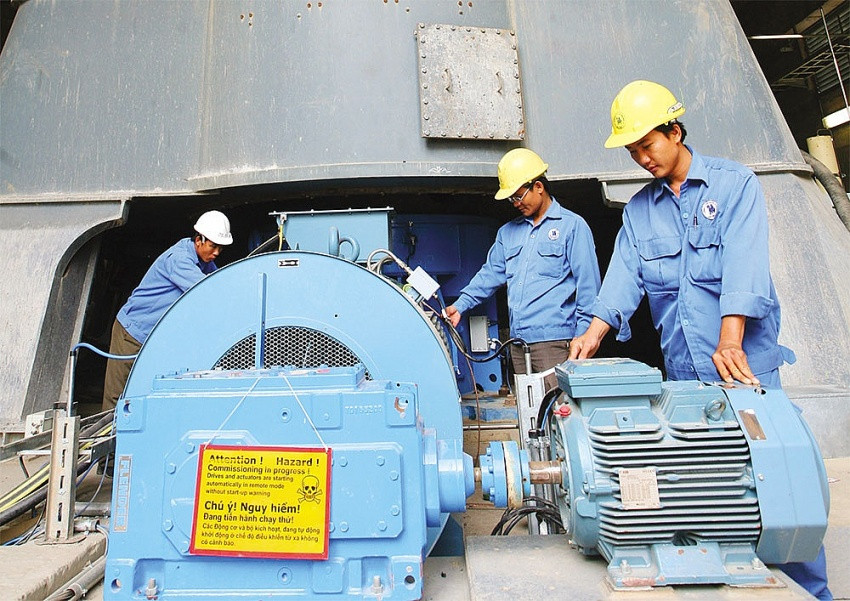The Ministry of Industry and Trade (MoIT) submitted to the prime minister in mid-August a dossier to propose building the new law. According to the Department of Industry under the MoIT, the law would help reduce the function of state management, and at the same time promote development and create conditions for stakeholders to participate in the industrial sector.
“The law will establish a legal framework for management from the central to local levels and between relevant ministries and agencies,” the dossier noted. “Besides that, it will combine solutions to foster industrial development. The draft law is expected to be submitted to the National Assembly for discussion and approval in 2023.”
 |
Building legislation for industrial development is an expectation of the business community.
Phan Dang Tuat, permanent deputy chairman of the Vietnam Association for Supporting Industries, told VIR, “The country has needed this law for many, many years. At present, the problems relating to the industrial sector involve regulations scattered across many different laws, such as those on investment, enterprises, and supporting small- and medium-sized ones in particular.”
“In addition, the law’s establishment is an urgent requirement as Vietnam wants to set specific targets for the industrialisation and modernisation process, as well as increase attraction of large-scale foreign-invested enterprises. Meanwhile, there is no specific law covering such goals, like other sub-industries have,” Tuat said.
The Resolution of the 13th Party Congress in early 2021 set out orientations for the development of the processing and manufacturing industry. By 2025, the proportion of the industry in Vietnam’s GDP will reach over 25 per cent, up from the current 16.5 per cent.
The establishment of a relevant law will foster the proportion of the processing and manufacturing industry, creating a stepping stone for attracting foreign investment capital to this sector.
At a conference between the prime minister and the business community earlier in August, THACO Group general director Pham Van Tai said, “The legislation should be added to the law-making programme in 2023, which will create a legal corridor to attract enterprises to invest and develop industrial production and promote the building of the industry, and the autonomous industry in particular.”
The processing and manufacturing sector has lured the lion’s share of foreign direct investment in Vietnam. Notably, in the January-July 20 period, the sector attracted well over $10 billion in registered capital, holding nearly 65 per cent of the country’s total registered capital.
The consolidated figure shows that foreign groups registered to invest $254.4 billion in over 15,750 projects in terms of the processing and manufacturing sector.
“We expect that there will be a particular regulation framework on fostering the development of local suppliers, which will contribute to improving their competitiveness,” said Duong Nguyen Thanh, vice president of Haast Industry Vietnam Co., Ltd, which is one of 14 domestic suppliers being supported via a Samsung smart factory in collaboration with the MoIT, and targets to become a first-tier vendor of Samsung in the near future.
According to Thanh, the number of local suppliers with a competitive capacity and of a large scale in the country remains limited. Domestic suppliers have to ensure the input materials, product standards, and logistics costs in order to optimise the selling prices of their finished products.
“A major aspect is that new leglisation is required to have specific and very detailed accompanying decrees guiding the implementation of the law so that businesses can have a deep understanding of their rights and responsibilities,” Thanh said.
Source: VIR